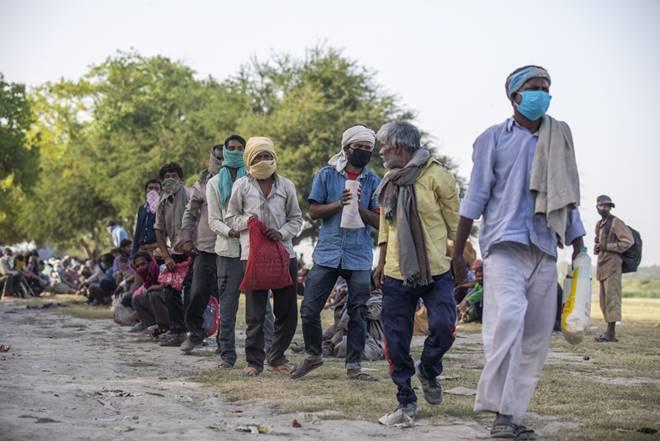This article is written by Bheeni Goyal from Symbiosis Law School, Pune which discusses the important provisions of the Payment of Wages Act and how the changes made in relation to the provision of the act hold relevance in the current scenario.
Table of Contents
Introduction
Indian Constitution has provided the responsibility to the Indian Government to secure work and ensure that even the workers live a decent life with all social, cultural opportunities. That’s why in the year of 1948, The Minimum Wages Act 1948 was introduced to ensure that a certain amount of wages should be made available to the workers so that they can take advantage of every opportunity available in their social environment. Generally, individuals confuse this act with the Payment of Wages Act that was introduced in the year of 1936. This act was introduced before the above-mentioned act and it makes sure that the workers are able to get all the wages in time and also prescribes the minimum wages which should be paid to them. The act has undergone amendments from time to time for effective implementation of the act and to make sure that the workers are getting enough wages in time for supporting themselves and their families. This author has made an effort to explain the important provisions of the act and various changes that hold relevance in this era.
Scope and Object of Payment of Wages Act, 1936
The Payment of Wages Act came into existence on 23rd April 1936 during the time of the colonial government. This act, as mentioned above, was introduced for regulating the payment of wages for a certain class of workers. The payment of wages act has described the term wages as the remuneration which has been made to the workers for the except the specific exclusions provided under this act. These exclusions include the value which has been provided for the supply of light or water, any monetary value for house accommodation or bonus, travelling allowances, gratuity, etc. This act regulates the payment of wages act by following an approach. This first one is the date when the wages are paid, the second one being to check whether the specified deduction from the wages is fine or not.
Section 1(4) of the Act has mentioned that the payment of wages will be applicable to any person who has been employed in a factory, any person who has been employed by the Railway Administration or through the sub-contractor or any person who has been employed in industrial and other establishments.
The state government has the power that after giving a three months notice in the Official Gazette of India can extend the provisions of the act to any class of person employed (Section 1(d)). Section 3 has made it mandatory for all the employers to take the responsibility of the payment of the required wages as provided under the act to all the above-mentioned employees. However, if any of the employers contravene any of Section 5 and section 7 of the act which talks about the timely payment of wages in current coins and currency then in such case the fine could be imposed on the employer which should not be less than 1000 Rupees but which can extend to 5,000 Rupees.
Amendments introduced in the act in relevance with the current era
For understanding the relevance of the Payment of Wages in the current era there is a need to understand the various amendments which have been introduced in this act, from time to time in order to adjust the need of the present-day employees. This act was developed long back and hence it might not hold the relevance in its true sense for the present generation. were significant amendments that were introduced in the 1936 act through the development of The Payment of Wages (Amendment) Bill, 2017. This bill was introduced in Lok Sabha by the Minister of Labour and Employment. The most significant change which has been made under the new act is that employers are no longer required to take the written authorization for the payment of wages through cheque or through the bank account. Section 6 of the 1936 Act authorizes the employer to pay the wages in coin or currency only, however, the proviso provided that if the employer wants, he or she can pay the wages through the cheque or by crediting the bank account of the employees. but only after obtaining the due permission from them. In the modern scenario, technology has developed and changed as compared to the time when the 1936 act came into force. Nowadays a large number of employees have their bank accounts.
The government has encouraged every citizen irrespective of his wealth status, should have a bank account. Around 80% of the workers or labourers have a bank account. Therefore it has become convenient for both the employers as well as the employees to transfer the wages through the bank accounts or through cheque. By doing this the complaints about less and untimely payment of the wages by the employees will be reduced. For the industrial and other establishments specified under the act, the government has made the provision to pay the remuneration through cheque or digital transfers only. This will help to achieve the objective of the digital economy. Many State governments have already introduced the said amendments in their acts like Punjab, Haryana, Kerala, Andhra Pradesh, etc. The Central Government through this amendment has introduced the vital policy of giving importance to the electronic mode of transacting. Adopting such a method will be useful in the present era as this assuredly will smoothen the process of the payment of wages and also, at the same time make it less burdensome to maintain the records for the payment of wages.
In 2017, the government through the notification increased the threshold of salary from 18,000 to 24,000 for the applicability of the act. This threshold was increased so that the scope of the act will cover more employees. Nowadays in every average and lower-middle-class households, the earning member has been earning at least 20,000 rupees or above that. Therefore increasing this threshold will increase the scope of the act now. The significant impact, if any, of the reviewed ‘salary threshold’ under the Payment of Wages Act on pari materia legislations in our country will need to be analyzed in the time to come, especially given that the Parliament is presently considering enacting the Labour Code on Wages, which will consolidate all the acts which include the Payment of Wages Act, 1936, the Minimum Wages Act, 1948, the Equal Remuneration Act, 1976, Payment of Bonus Act, 1965.
Effect on Payment of Wages due to COVID-19
Recently due to the situation of the COVID-19 in the country, the government has imposed a nationwide lockdown because many workers have been affected. However, the Ministry of Labour and Employment issued an advisory in March where all the employers were appealed not to cut the wages or salary of their employees and avoid terminating them. These new provisions were made especially available for casual and contract workers. Now there are various statutes in India for example, The Payment of Wages Act, Industrial Dispute Act, etc which already govern the provisions in relation to the payment of wages or termination of the employees and therefore the Ministry only issued an advisory instead of issuing an order directing them to follow the new provisions. But there is a need to realize that this lockdown is not only affecting the employees but employers as well and therefore the government has the responsibility to not only mitigate the economic hardships of the employees but the employer as well. Because under Article 19(1)(g) of the Constitution, both the employer and the employee have the right to carry on the trade or occupation. But the order given out on 29th March 2020, issued by both the State government and Union Government directing the employers to take the measures to ensure that wages are paid to all the employees at their respective workplaces which benefits only the employees or the workers and not the employers.
Landmark Judgements
The provisions for the Payment of Wages act, although governs the in time payment of the wages to all the workers. However, the provision for timely payment will not be applicable in the current scenario due to the situation of COVID in the whole world. Due to the non-applicability of the provisions, the Ministry of Labour and Employment passed the order for governing the payment of the wages until the situation of lockdown is not over. Due to the order which has been issued on 29th March 2020 by the government, directing the employers to pay full salary to all the employees and workers, there should be no termination of the employees during the period of the lockdown. If there would be any non-compliance on the part of the employers, then in such case, the legal action will be taken against that employer under the provisions of the Disaster Management Act 2005. Due to this order, there were a number of the Public Interest Litigations which had been filed in the court for challenging the validity of the order passed by the Ministry. As the order passed by the Ministry has mostly affected the employers there were a couple of PIL which has been filed in the court.
In the case of Ludhiana Hands Tools Association v. Union of India, a Public Interest Litigation was filed in the Supreme Court claiming that the order is beyond the scope of the Government under the Disaster Management Act as this act empowers the committee to fight the disasters and is not formed for the purpose of directing the employers to pay the wages in the time of lockdown. Therefore this order is outside the scope of the act under which it is passed. Also, Section 10(2)(1) of the Disaster Management Act 2005, which has been interpreted in an above-mentioned manner is arbitrary and is violative of Article 14 and 19(1)(g) and 300 A of the constitution. In this case, although the Supreme Court has granted the interim relief and directed that no coercive action would be taken against the petitioners.
In the other case of Twin City Industrial Employers Association v. Union of India, the same arguments were presented however the Supreme Court did not interfere in the order passed by the Ministry from protecting the small scale enterprises from paying any wages to the employees.
The Supreme Court has passed contradictory orders in both the cases however in the first case the provisions of the Payment of Wages Act are being affected as there is no timely payment of the wages to the workers.
Conclusion
In the modern era, the Payment of Wages Act has developed appropriate provisions for facilitating smooth functioning and the payment of wages to the workers. By increasing the threshold, they have increased the scope of the applicability of this act to a lot of employees who have been the sole bread earners of their family. Due to the situation of COVID-19 and the order passed by the Ministry, there has been an impact on the implementation of the act as many employers have been filing PIL and the Supreme Court has been providing interim relief to them. Taking into consideration the current scenario, it is really important to consider and implement the provision of the Payment of Wages Act for timely payment of the wages to all the workers and employees. Many workers had a great impact on their livelihood due to this situation. Although this situation has brought economic hardship for both employers and employees, there is a requirement to balance the rights of both.
References
LawSikho has created a telegram group for exchanging legal knowledge, referrals and various opportunities. You can click on this link and join:
 Serato DJ Crack 2025Serato DJ PRO Crack
Serato DJ Crack 2025Serato DJ PRO Crack











 Allow notifications
Allow notifications


